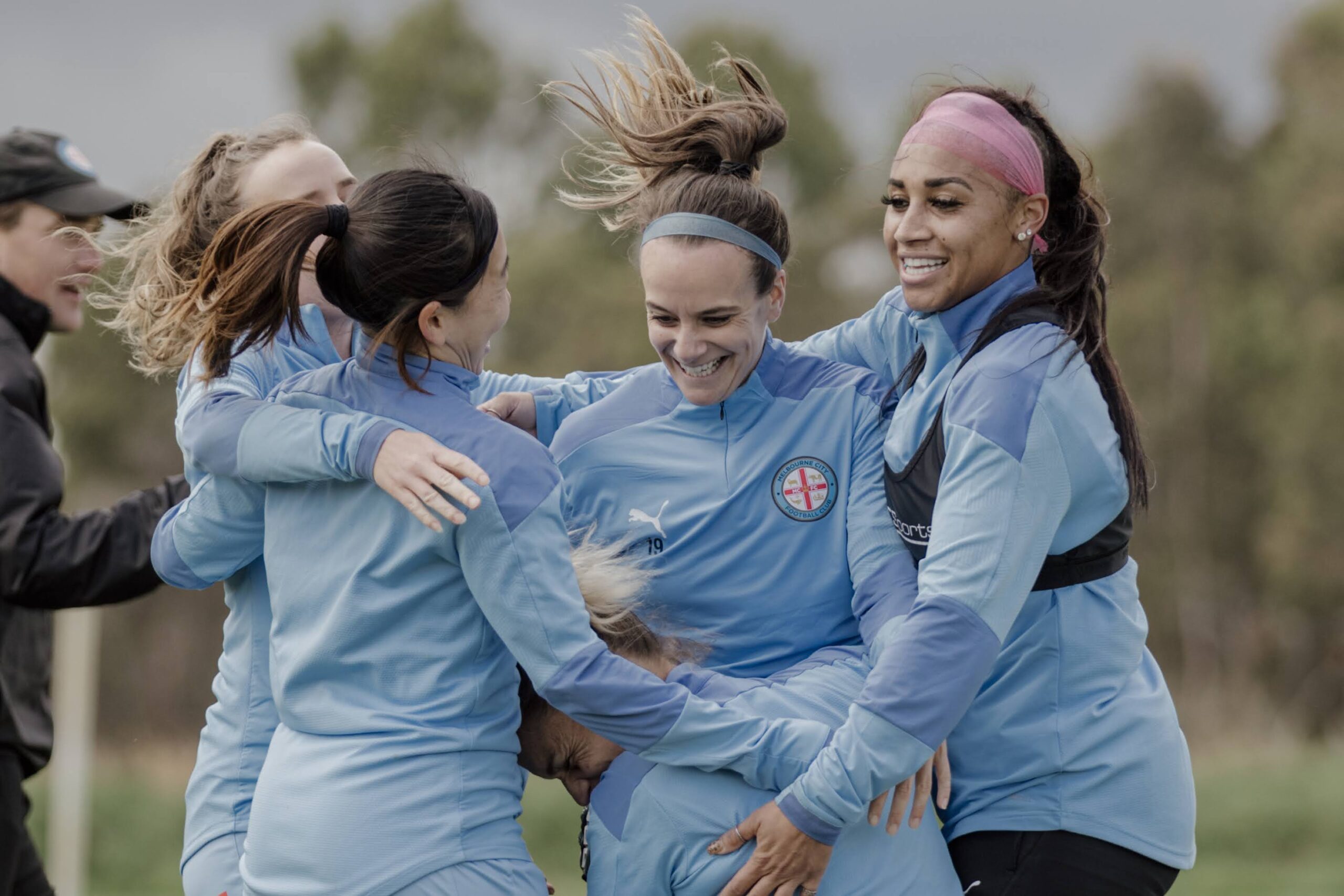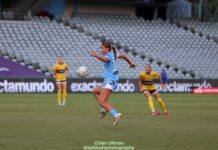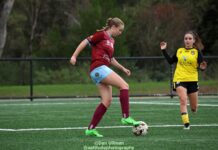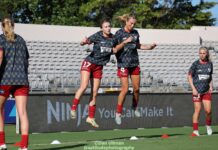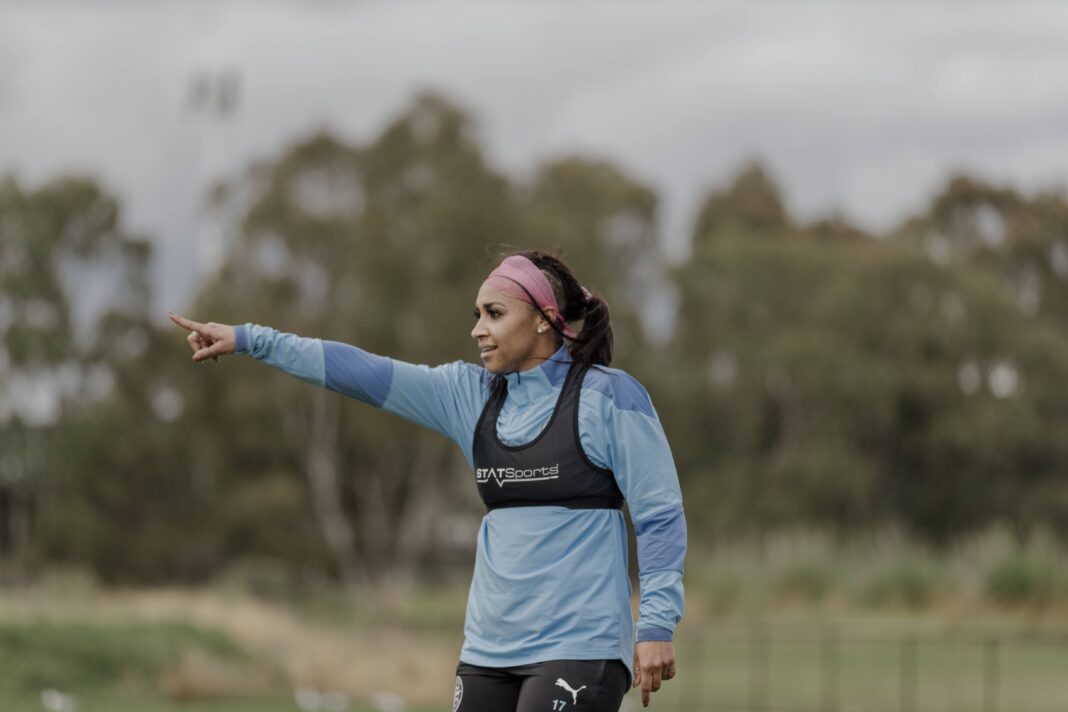
One of the most intriguing stories to emerge in the lead up to this season is Samantha Johnson’s return – to the W-League, and to the game.
A little over a year ago, in June 2019, she left football for good. A little over a month ago, reigning champions Melbourne City announced that they had signed the American defender.
At the time of Johnson’s retirement, she had been playing for Utah Royals in the National Women’s Soccer League (NWSL). When fellow Royals’ defenders Kelley O’Hara, Becky Sauerbrunn (USWNT) and Rachel Corsie (Scotland) returned from national duty at the FIFA Women’s World Cup, Johnson played her last game.
She had found herself conflicted between her football career and the impact she wanted to make off the field. Stepping away, Johnson threw herself into this community-oriented work, which included developing her own brand CASS and continuing her Master’s degree.
“I really, really want to help kids and the youth and the community where I come from, and enhance education and all these great things. But I had a struggle with aligning that and how to leverage what I was doing on the field so we could have a positive outcome if you will, because I was going back and forth – trying to be two different people, when I should have just been one person.”
Throughout her years of playing, Johnson had prioritised making sure she had a source of income when her career ended. This planning paid off.
“[Opportunities] definitely were already there because of all of the work that I did. The dollars and just time and effort was already paying off. So when I stopped playing, that’s when I started to really develop the brand and focus on where I wanted to implement and how I wanted to help the kids.”
The possibility of managing both her love for playing football and her passion for advocacy made her reconsider retirement. Johnson saw the potential of this when she met her now-agent Maggie Ntim, of Trinity 3 Agency.
“She actually got in contact with me through a mutual friend, then we just were talking. And she kind of talked me out of retirement – one, to leverage what I want to do off the field, and [two] she basically just said that I have accomplished a lot so far, but I could accomplish more.”
Ntim isn’t Johnson’s first agent, but is the first to compatibly match Johnsons’ own needs and ideals.
“I’m a really aggressive personality,” she says of her previous decision to go without an agent. “I’m not shy to talk to people or ask them for things. So I just thought, ‘we’ll cut the middleman…’ If I want a deal or want to send a brand emails, I’ll just do it. I just took on the role [because] I didn’t really need someone in that space at the time.
“I think it just kind of it happens for a reason that Mag came about when she did and she has all the experience that I definitely need to take this second effort in my pro-career to a new level, because we’re trying to really do big things and we want to change the game for the next generation. So we feel that we met each other probably at the perfect time-frame. We’re completely aligned with what we want to do within the game.”
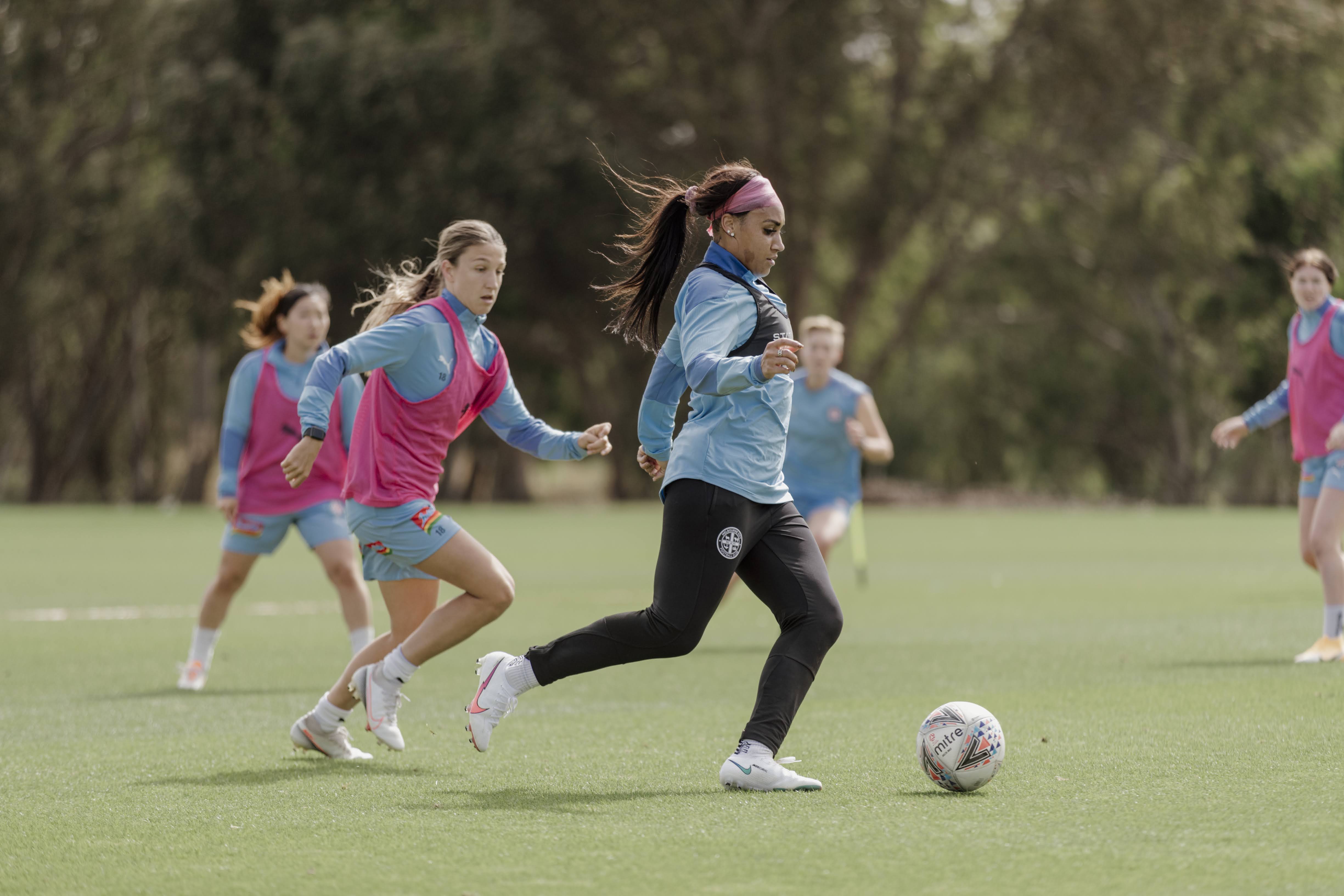
She began by training with the Utah Royals during this year’s NWSL Fall series. The next step for her and Ntim was to find a club “anywhere but America” to get match minutes. The choice was easy when Melbourne City responded positively, given Johnson’s previous experiences with W-League.
“I didn’t really know what to expect when I came to Sydney, the first go-around in 2014. But soon as I came down here, I knew I really, really liked the country and liked the people and the league seemed like it was going in the right direction.
“And every year I come back [to] the league, it’s so much better; the level is only going up [and] it’s never gone down. So I think I really enjoy that part because I just know every time I come back, it’s going to be challenging.”
Following her first stint with Sydney, she played for Melbourne Victory in 2017. However, it was her role in Victory’s 2018/19 campaign that many may remember her by. Playing 90 minutes in all regular season matches, she showed grit as centre-back, unafraid to produce a hard-hitting tackle or make a last-ditch clearance from the goal-line. Her partnership with Laura Brock played an essential part in the club’s ascent from cellar dwellers to league premiers.
However, part of the ongoing appeal of the W-League for Johnson has been something a little less poetic than raising trophies: personal finances.
“Up until just this past year, us [Americans] in the NWSL did not get paid 12 months out of the year, you got paid whatever the season length was, so it’s usually like seven or eight months. And then we would go to W-League and get obviously contracts and loans there, so you could get paid 12 months of the year and stay fit pretty much, almost 11 or 12 months out of the year… the motivation was to just stay paid and stay fit.”
The financial precarity of “staying paid” in the women’s game is something many, if not most, players grapple with. When asked if she thinks her own trajectory may have been different if football had been a more stable source of income, the answer is yes: “If you can’t sustain or make like a decent living doing everything that other professional athletes do then you really have to reevaluate.
“Being women on the women’s side … we’re basically all like trail blazers because we’re trying to progress the game for the next generation. So for people my age, or even younger, the struggle is like very real, obviously, because you’re trying to sustain but then you’re trying to make sure that the next generation doesn’t have to go through the same thing.”
Johnson will be playing alongside some of this next generation in a City squad comparatively younger to previous years’. In terms of player development, she’s excited to see this shift.
“I think it’s great, because the young kids don’t really get a good opportunity to go through like the ebbs and flows like that… If you’re like a younger player, and you have opportunity to play serious games and moments, then you learn quicker.”
She also sees this as an opportunity use her experience as a resource for younger members of the squad. Our conversation finishes with her sharing some clear advice for those who may encounter similar challenges.
“It’s really about like aligning yourself. Athletes have two environments that we’re consistently functioning in: the environment of the sport, and then the environment of just being “regular” when we’re never really regular but when you’re not competing… your interests and stuff outside of your sport [that] are going to be there when you go home. So it’s like how do you align that so you can feel like a centered and whole person?
“Just go back and forth and use each side to feel the other. I think because I have that aligned now that it’s just so much easier to function, so you don’t feel like you’re wasting so much energy. So I guess like young ones who have figured out maybe when they like outside of soccer or whatever, like how can they use soccer, to make their off-the-field presence or off the field passions flourish.
“That’s the biggest struggle, but once you figure it out, it’s really nice.”
